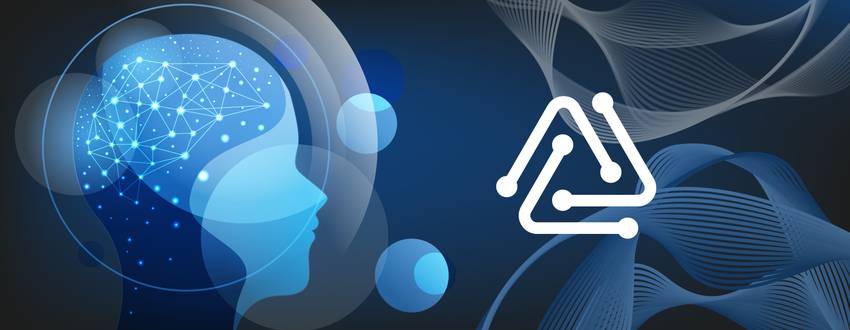News
Inaugural Session of the LIRP

27 march 2025
On March 26, 2025, Domuni Universitas held the inaugural session of its Laboratory for Intelligence and Research in Pedagogy (LIRP) [Read the launch article], in the presence of its founding members and academic representatives of the institution. This landmark moment marked the official launch of an initiative announced just days earlier by the Rectorate, the faculties, and the pedagogical teams, as part of a major project dedicated to the continuous improvement of quality in distance higher education.
This newly established research structure is now fully operational. It reflects Domuni’s strong commitment to deepening its scientific reflection on online learning practices, integrating technological and pedagogical innovations, and combining the insights of artificial intelligence, the human sciences, and educational practices drawn from diverse international contexts.
A Research Ambition Rooted in Experience
The creation of the LIRP builds on years of sustained work by Domuni Universitas to rethink distance higher education in all its complexity. The laboratory has been designed as a structured academic space, dedicated to experimentation, critical analysis, and the development of innovative pedagogical models. It addresses a concrete need: combining field-based experience with scientific rigor to better respond to the ongoing transformations in the field of education.
The inaugural session laid the methodological and ethical foundations of the laboratory by clarifying the core mission and guiding principles. The LIRP is thus committed to a reflective analysis of existing pedagogical practices at Domuni Universitas, while also developing new resources and tools tailored to the specificities of distance education. It undertakes a critical evaluation of how artificial intelligence is used in learning environments, in order to assess its benefits, limitations, and ethical implications. All of these efforts are part of a broader goal: to reinforce pedagogical quality through a process of continuous, rigorous, and context-sensitive improvement.
A Founding Team Reflecting Domuni’s International Mission
The strength of the LIRP lies in the diversity of its founding team. Researchers, lecturers, academic leaders, and practitioners in distance learning came together for this inaugural event to co-construct a shared vision rooted in transculturality and transdisciplinarity—two foundational principles of Domuni Universitas’s identity.
Based in Europe, Africa, Latin America, the Arab world, and transnational regions, the founding members embody the international orientation of the Laboratory for Intelligence and Research in Pedagogy. Their local roots in diverse educational contexts foster a meaningful dialogue between plural pedagogical models, complementary methodologies, and varied empirical experiences. This diversity offers a rich foundation for critical and contextualized scientific inquiry, capable of illuminating the contemporary challenges of distance higher education.
In disciplinary terms, the team’s expertise spans a wide spectrum: education sciences, philosophy, theology, sociology, data science, and AI applied to learning. This convergence of knowledge encourages the emergence of new solutions that are simultaneously grounded in intellectual tradition and open to contemporary perspectives.
A Scientific Structure Organized Around Thematic Divisions
To ensure the clarity and methodological coherence of its work, the LIRP is organized into two complementary scientific divisions, whose research areas were presented during the inaugural session.
The Cybermentorship Division, coordinated by Dr. Jean-Louis Meylan, focuses on the study of distance pedagogical support models. It explores the relational, temporal, and symbolic dynamics of the educational relationship in digital environments, placing particular emphasis on the role of the mentor, the use of digital monitoring tools, and the types of mediation that can enhance student engagement. The concept of cybermentorship, already implemented at Domuni, now becomes a full-fledged subject of academic inquiry.
The Artificial Intelligence Division, led by Laure Chocun, examines current and emerging uses of AI in higher education. It seeks to define the conditions for a responsible and ethical integration of these technologies into academic frameworks. By establishing a critical dialogue between humans and machines, this division explores how pedagogical roles, forms of interaction, and assessment strategies are being transformed by the advent of AI.
A Collective Governance Model and Experimental Methodology
The LIRP relies on a flexible and collaborative governance model, supported by a scientific council composed of both internal and external members, and coordinated by a scientific director. This mode of governance is intended to promote collective intelligence, ensuring that the laboratory’s scientific direction is directly aligned with the needs of learning communities.
The research activities will be grounded in clinical vignettes, drawn from real-life situations experienced by Domuni’s faculty, mentors, and students. This inductive and case-based approach will anchor the laboratory’s work in everyday reality, while placing it within a broader critical and comparative perspective.
A Strategic Vision for the Future of Digital Pedagogy
In closing the inaugural session, the Rectorate emphasized the strategic importance of the LIRP and commended the commitment of its founding members. This laboratory now serves as a structuring force in Domuni’s academic policy, aligned with the demands of scientific research, the goals of institutional quality, and the desire to play an active role in the transformation of distance higher education.
The LIRP aims to join international research networks, publish its findings in academic journals—notably in Télos, the scientific journal of Domuni Universitas—and develop training modules for university teachers, helping them evolve their teaching competencies in the digital age.
A Collective and Globally-Oriented Academic Dynamic
In summary, the LIRP represents more than a research center: it is the institutional expression of a shared commitment to critically and rigorously rethink distance higher education with a humanistic approach. It demonstrates Domuni Universitas’s ability to bring together theoretical knowledge, pedagogical experimentation, and transcultural openness in an academic landscape undergoing profound transformation.
With this inauguration, Domuni reaffirms its status as a reference institution in the field of contemporary pedagogical research, true to its intellectual heritage while remaining firmly oriented toward the future.

